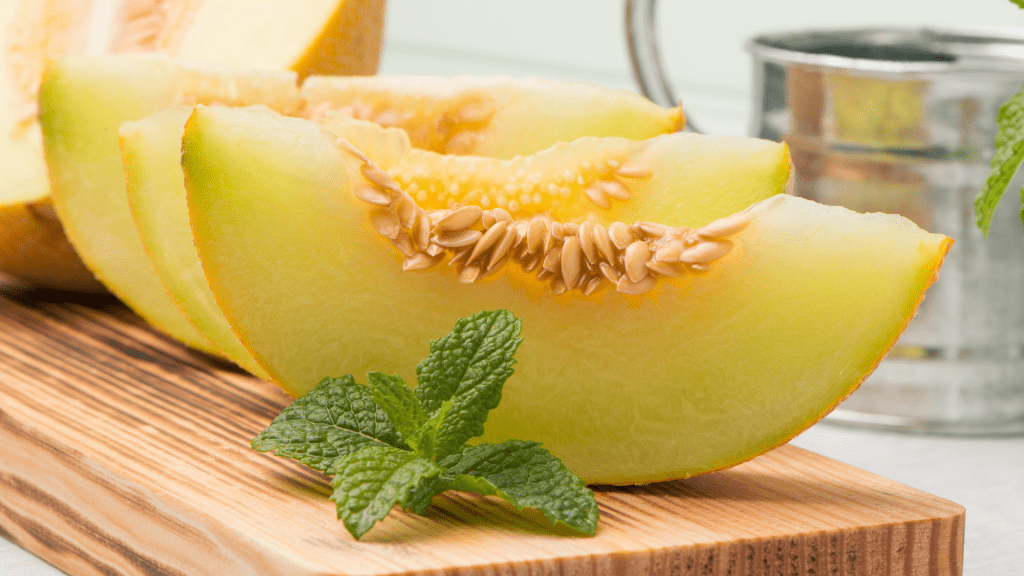Welcome to our article on the topic of whether or not cats can eat honeydew. Honeydew is a type of melon that is sweet and juicy, and it is enjoyed by many humans as a refreshing snack or dessert. But can cats also enjoy this tasty treat, or is it potentially harmful to them? In this article, we will explore the nutritional value of honeydew for cats, as well as any potential risks or benefits of feeding it to your feline friend. We will also provide some general guidelines for safely introducing honeydew into your cat’s diet, if you decide that it is appropriate to do so. So, let’s dive in and learn more about whether or not cats can eat honeydew.
It is generally considered safe for cats to eat honeydew in small amounts as a treat. However, it is important to remember that honeydew should not make up a significant part of a cat’s diet, as it does not provide the complete and balanced nutrition that they require. Instead, commercial cat food or a diet of raw meat and bones should make up the majority of a cat’s caloric intake.
Now that you know it’s safe to let cats eat a small amount of Honeydew, Lets take a deeper dive into this topic.
What Is Honeydew?
Honeydew is a type of melon that belongs to the same family as cantaloupe and watermelon. It has a round or oblong shape and a pale green to yellowish skin. The flesh of a honeydew is also pale green and has a sweet, juicy flavor.

In terms of its nutritional value, honeydew is a good source of several essential nutrients. A 1-cup serving of honeydew melon (about 165 grams) contains the following nutrients:
- 60 calories
- 0 grams of fat
- 16 grams of carbohydrates
- 1 gram of protein
- 2 grams of fiber
- 84 milligrams of vitamin C (140% of the recommended daily value)
- 367 milligrams of potassium (10% of the recommended daily value)
- 22 micrograms of folate (6% of the recommended daily value)
Honeydew is also a good source of other vitamins and minerals, including vitamin B6, copper, and manganese. It is low in calories and contains no fat or cholesterol, making it a healthy choice for humans as a snack or dessert.
Can Cats Eat Honeydew?
So as we’ve already mentioned, it’s ok for your cat to eat Honeydew in moderation. However, it is important to keep in mind that honeydew should not be a significant part of a cat’s diet, as it does not provide the complete and balanced nutrition that cats need. Commercial cat food or a diet of raw meat and bones should make up the majority of a cat’s caloric intake.
If you do decide to offer your cat honeydew as a treat, there are a few guidelines to follow to ensure their safety:
- Introduce Honeydew Slowly:
- As with any new food, it is important to introduce honeydew slowly to your cat’s diet to make sure they do not have any adverse reactions. Start with a small amount and observe your cat’s behavior and appetite over the next 24-48 hours. If they seem to tolerate it well, you can gradually increase the amount over time.
- Remove the Seeds and Rind:
- Honeydew seeds and rind can be difficult for cats to digest and may cause gastrointestinal upset. Be sure to remove these parts before giving the honeydew to your cat.
- Cut the Honeydew Into Small Pieces:
- Honeydew should be cut into small pieces to prevent choking.
- Offer Honeydew As a Treat, Not a Meal:
- As mentioned, honeydew should not make up a significant part of your cat’s diet. It should only be offered as an occasional treat, in addition to their regular diet.
- Watch for Allergic Reactions:
- Some cats may have an allergic reaction to honeydew or other types of melon. Symptoms of an allergic reaction in cats may include vomiting, diarrhea, and difficulty breathing. If you notice any of these symptoms after giving your cat honeydew, stop feeding it to them and consult your veterinarian.
Potential Risks To Feeding Your Cat Honeydew
Honeydew is a sweet and refreshing treat that many humans enjoy, but can cats also benefit from this tasty fruit? While honeydew is generally considered safe for cats to eat in small amounts as a treat, there are a few potential risks to consider.

- Allergic Reaction
- One risk is the possibility of allergic reactions. Some cats may have an allergic reaction to honeydew or other types of melon, just as some humans do. Symptoms of an allergic reaction in cats may include vomiting, diarrhea, and difficulty breathing. If you notice any of these symptoms after giving your cat honeydew, stop feeding it to them and consult your veterinarian.
- Upset Stomach
- Another risk to consider is the possibility of gastrointestinal upset if the honeydew is not properly digestible for cats. Cats have a different digestive system than humans, and they may not be able to properly process certain types of food. If your cat eats a large amount of honeydew or eats it too frequently, they may experience digestive issues such as vomiting or diarrhea.
- Chocking
- A third risk to consider is the possibility of choking if the honeydew is not cut into small enough pieces. Cats have small throats and may struggle to swallow large pieces of food, which could lead to choking. To prevent this, be sure to cut the honeydew into small, bite-sized pieces before offering it to your cat.
Overall, it is important to be aware of these potential risks when feeding honeydew to your cat and to take steps to minimize them. This may include introducing the honeydew slowly, removing the seeds and rind, cutting the honeydew into small pieces, and watching for any signs of an allergic reaction or gastrointestinal upset.
Final Thoughts
Honeydew can be a safe treat for your cat in small amounts, but consuming too much may cause stomach upset. It is important to note that most cats do not have a preference for honeydew as they are unable to taste sweetness.
If you are considering adding anything new to your cat’s diet, it is always a good idea to consult with your veterinarian. While regular consumption of honeydew may not offer any benefits for your cat, an occasional treat should not cause any harm. However, if your cat consumes honeydew on their own, it is generally safe for them to do so.
